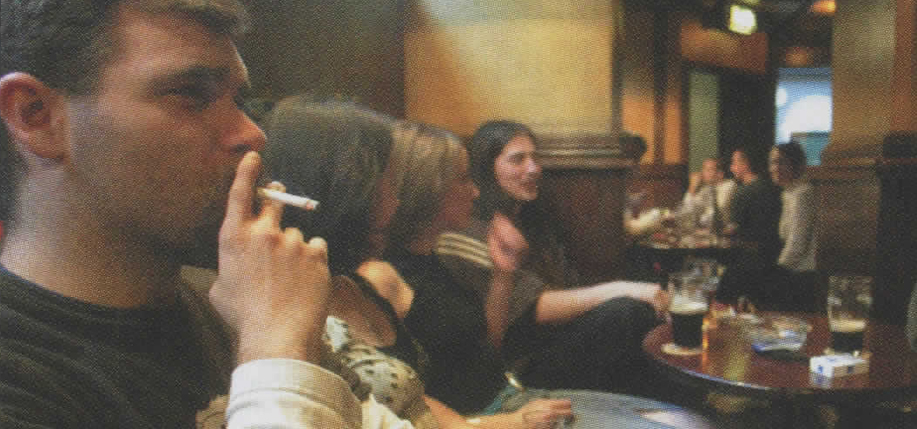On March 29, 2004 Ireland became the first country in the European Union to ban smoking in workplaces, including all restaurants and pubs. Although some smokers and the Irish Vintners Federation, a trade group representing pub owners, had opposed the ban, it has taken effect and largely been obeyed by patrons.
Even in rural pubs, customers are taking the law seriously, which was not expected. Tony McCann, owner of McCann’s in Doolin, County Clare, said, “The ban enforced itself, we didn’t have a problem enforcing it. People have accepted it.” He added that the ban has had little negative impact on his business. “We have a lot of tourists and they prefer not to have smoke in our restaurant. But the local pubs that don’t have tourists or food — they are more affected,” he said. McCann confirmed that his staff preferred to not have smoke in the restaurant and pub and that “the general feeling is that that ban is working very well.”
The ban, which was spearheaded by Ireland’s Health Minister Mícheál Martin, was supported by the public before it came into effect. Approximately 60 percent of those surveyed backed the ban. Many smokers viewed the ban as an opportunity for them to follow the growing trend to quit. In a recent poll, 25 percent of Irish people said they smoke, down from 31 percent in 1998.
Before it was introduced, there was very little effective opposition to the ban. The case for civil liberties — or the right to smoke — was barely mentioned in the debate. Additionally, the Vintners Association failed to rally support to oppose the ban. Said Simon Clark, the director of Forest, a UK-based organization that defends the rights of smokers, “We kept out of the Irish debate because we didn’t want to influence the debate from London. But in hindsight, it was a mistake. The Vintners did too little too late.” He added that the Vintners are not popular in Ireland, as most people think that alcohol is overpriced, and therefore the public was reluctant to support the trade group’s position on smoking.
Ireland was inundated with media attention during the first days of the ban, and the new law has had ripple effects throughout Europe. Norway will be the next E.U. country to introduce an indoor smoking ban in June, marking the potential for a domino affect across the Union. But Clark says that this is highly unlikely, pointing out that particularly in Portugal, Spain and Italy, smoking is still a popular activity with little groundswell for a ban.
It is still too early to determine if the ban’s enforcement may become more lax over time. Overall, the transition to smoke-free eating and drinking establishments has been a smooth one. The Irish Times has reported that Martin will now turn his attention to curbing binge-drinking, which will arguably be a tougher health issue to tackle. ♦


Leave a Reply